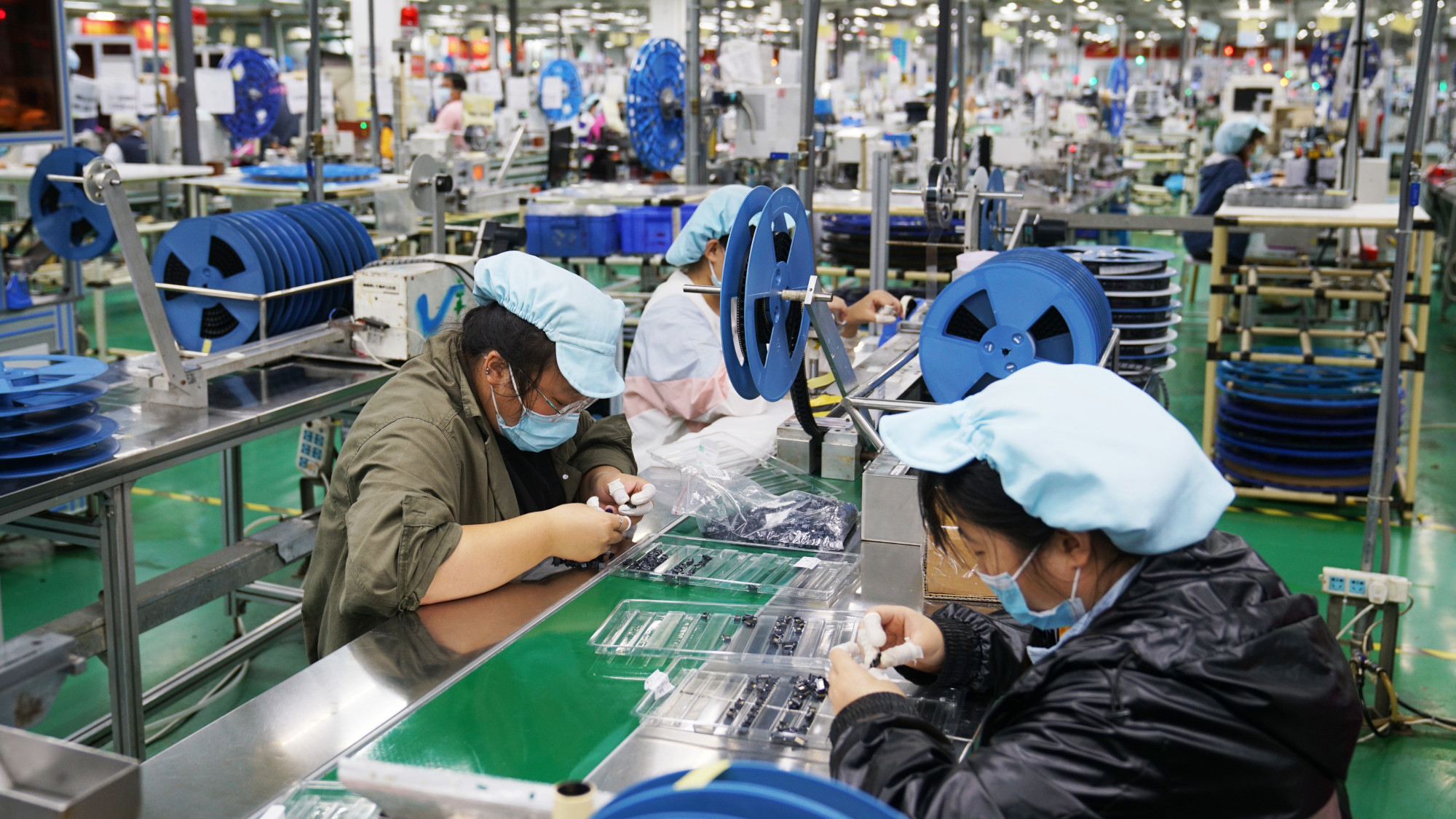Not invincible: Tech burned by tariff war
Tariffs on Asian countries are shaking up Silicon Valley, driving up prices and deepening global tensions

A free daily email with the biggest news stories of the day – and the best features from TheWeek.com
You are now subscribed
Your newsletter sign-up was successful
Big Tech is a big loser in a global trade war, said Julia Shapero in The Hill. Last week's stock market rout was especially hard on companies like Apple, Dell, and HP that "depend extensively on manufacturing and supply chains that run through China and Taiwan." Apple certainly knew it wasn't going to dodge any trade war unscathed, "given that most of its products are produced in China." But even efforts to diversify away from China in recent years didn't save it after steep tariffs were also placed Vietnam (46 percent) and India (26 percent). It will be difficult for Apple and other companies not to pass the costs on to consumers. Wall Street analysts, for instance, have calculated that all the tariffs planned for computer equipment will raise the $799 price of the cheapest iPhone 16 model to over $1,140.
Tech companies that hardly import anything are also getting battered, said Mike Isaac in The New York Times. Tech giants like Meta and Google that rely on digital advertising collect billions from "small and medium-size businesses" from around the world that are likely to "spend less on advertising" in the United States. Meta is particularly vulnerable. Roughly "10 percent of its revenue in 2023 was from Chinese companies spending heavily on advertising." Temu and Shein, Chinese e-commerce platforms, are expected to practically disappear after Trump closed the trade loophole that allowed them to sell cheap products in the U.S. Tariffs will even "boost costs for businesses building the infrastructure to deliver artificial intelligence," said Isabelle Bousquette in The Wall Street Journal. Trump exempted semiconductors from tariffs for now. But everything from the price of steel used to build data centers to the wiring inside of them is under the threat of taxation.
Tech lobbyists are still hoping that tariffs bring Europe to the negotiating table, said Brendan Bordelon and Gabby Miller in Politico. Silicon Valley has for years "been complaining about foreign regulations on their platforms—taxes, fines, and restrictions that the U.S. doesn't impose." One of their biggest hopes was that Trump's tariffs would finally make European countries back down. They still might. But for now, the EU is suggesting it may "double down," hitting U.S. tech companies even harder in a counterstrike that can easily snowball into a tech cold war.
The Week
Escape your echo chamber. Get the facts behind the news, plus analysis from multiple perspectives.

Sign up for The Week's Free Newsletters
From our morning news briefing to a weekly Good News Newsletter, get the best of The Week delivered directly to your inbox.
From our morning news briefing to a weekly Good News Newsletter, get the best of The Week delivered directly to your inbox.
Remember, billionaire tech leaders lined up behind President Trump at his inauguration, said Will Oremus in The Washington Post. After he has forged ahead with antitrust lawsuits, reneged on his pledge to ban TikTok, and launched a global trade war that shaved $1 trillion in tech firms' value, it looks like Trump "may not have tech interests at heart after all."
A free daily email with the biggest news stories of the day – and the best features from TheWeek.com
-
 Is Andrew’s arrest the end for the monarchy?
Is Andrew’s arrest the end for the monarchy?Today's Big Question The King has distanced the Royal Family from his disgraced brother but a ‘fit of revolutionary disgust’ could still wipe them out
-
 Quiz of The Week: 14 – 20 February
Quiz of The Week: 14 – 20 FebruaryQuiz Have you been paying attention to The Week’s news?
-
 The Week Unwrapped: Do the Freemasons have too much sway in the police force?
The Week Unwrapped: Do the Freemasons have too much sway in the police force?Podcast Plus, what does the growing popularity of prediction markets mean for the future? And why are UK film and TV workers struggling?
-
 Moltbook: The AI-only social network
Moltbook: The AI-only social networkFeature Bots interact on Moltbook like humans use Reddit
-
 Are AI bots conspiring against us?
Are AI bots conspiring against us?Talking Point Moltbook, the AI social network where humans are banned, may be the tip of the iceberg
-
 Silicon Valley: Worker activism makes a comeback
Silicon Valley: Worker activism makes a comebackFeature The ICE shootings in Minneapolis horrified big tech workers
-
 AI: Dr. ChatGPT will see you now
AI: Dr. ChatGPT will see you nowFeature AI can take notes—and give advice
-
 Can Europe regain its digital sovereignty?
Can Europe regain its digital sovereignty?Today’s Big Question EU is trying to reduce reliance on US Big Tech and cloud computing in face of hostile Donald Trump, but lack of comparable alternatives remains a worry
-
 TikTok finalizes deal creating US version
TikTok finalizes deal creating US versionSpeed Read The deal comes after tense back-and-forth negotiations
-
 Data centers could soon be orbiting in space
Data centers could soon be orbiting in spaceUnder the radar The AI revolution is going cosmic
-
 AI griefbots create a computerized afterlife
AI griefbots create a computerized afterlifeUnder the Radar Some say the machines help people mourn; others are skeptical